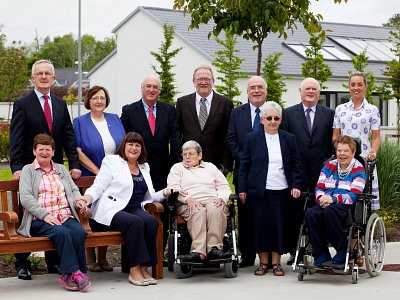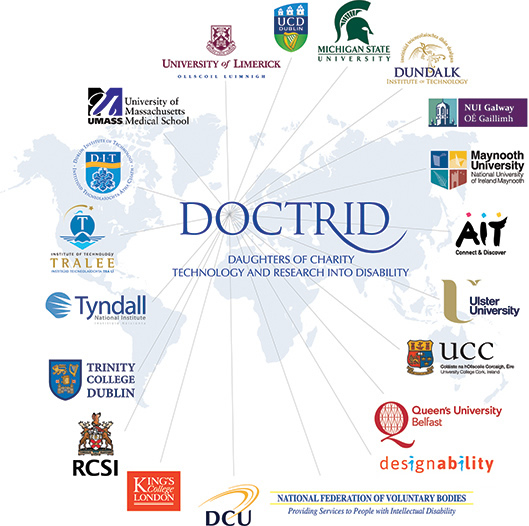About DOCTRID
DOCTRID is a collaborative international research institute committed to research excellence into Intellectual Disabilities (ID) and autism.

It is estimated that between 1-2% of the population has an Intellectual Disability which means that currently there are 8 million people with ID in Europe. Similar figures exist for Autism Spectrum Disorders, although this is harder to define due to difficulties in diagnosis. In addition, up to 40% of people with ASD have an ID which means that challenges and interventions can often be transferrable from the ID population to those with ASD.
Society is moving from a medical model of disability to a social model whereby people with disabilities are recognised as equal and valuable members of society with the same rights and responsibilities as all other citizens. However, challenges still remain around inclusion and participation in society, personal choice and decision making. These challenges are due to a number of factors including inadequate government policies; a lack of awareness and understanding about disability; a lack of funding for service provision; inadequate research and fragmented delivery of services. In particular, people with Intellectual Disabilities (ID) or Autism Spectrum Disorders (ASD) may face additional barriers as a result of difficulty in communication.
The DOCTRID Research Institute-An international multi-sectoral network

Read more about the DOCTRID partners on the ASSISTID website
DOCTRID is committed to multidisciplinary research. This means that clinicians, psychologists, engineers, occupational therapists, computer scientists, educators, speeach and langugage therapists and other experts working together to..
1) Gather information on the challenges and barriers facing people with ID or ASD
2) Devise solutions (e.g. develop or adapt Assistive Technology, new assessment tools, policy recommendations)
The DOCTRID Research Institute is leading the way into research for Assistive Technologies (AT) through the ASSISTID programme, co funded by the European Union and RESPECT. Up to 40 researchers will undertake individual projects in the area of AT for Intellectual Disability and Autism Spectrum Disorder. View the current ASSISTID projects here
According to the UN Convention on the Rights of Persons with Disabilities, Member States have a general obligation to ‘undertake or promote research and development of, and to promote the availability and use of new technologies, including information and communications technologies, mobility aids, devices and assistive technologies, suitable for persons with disabilities, giving priority to technologies at an affordable cost.’
Watch our video on how Assistive Technologies impacts the lives of people with disabilities
